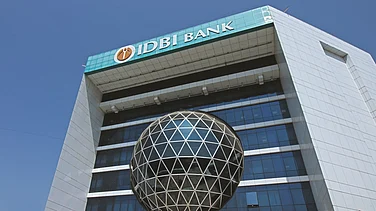The ban on export of broken rice and duty on outbound shipment of non-basmasti/non-paraboiled rice will boost local supplies and ease pressure on the domestic prices, a senior government official said on Thursday.
As per the data maintained by the Ministry of Consumer Affairs, the wholesale prices have risen by 10.7 per cent to Rs 3,357.2 per quintal as on September 14 from Rs 3,047.32 per quintal a year ago. The retail prices have gone up by 9.47 per cent to Rs 38.15 per kg from Rs 34.85 per kg.
Animal feed prices too have increased. Maize price rose from Rs 19 per kg on January 1, 2022 to Rs 24 per kg on September 8, 2022. Broken rice price has also increased from Rs 16 per kg to Rs 22 per kg during the same period.
The local prices have come under pressure following the likely drop in rice output by 6-7 million tonnes in the ongoing kharif season of 2022-23 crop year (July-June) despite enough stocks in the government godowns.
"The local rice price have begun to stabilise after the ban on export of broken rice. In some cities, we have also witnessed minor fall in the rates," the official told PTI.
Last week, the food ministry said there has been an "absolutely abnormal" rise in shipments of broken rice and that broken grains were also not available in sufficient quantity for animal feed as well as ethanol blending programme.
The ban, imposed earlier this month, came in the backdrop of a likely fall in kharif rice production this year in view of less coverage of paddy due to both deficit and excess rainfall in some parts of the country.
The area under paddy coverage remained lower by 4.95 per cent to 393.79 lakh hectare till last week, as per the agriculture ministry data.
Although the government is yet to release officially the production estimate of kharif rice in the 2022-23 crop year (July-June), the official said there could be 6-7 million tonnes of fall in overall kharif rice output based on the drop in sowing and current crop condition of the paddy.
Paddy is the main kharif crop and its sowing begins with the onset of the southwest monsoon in June and harvesting from October onwards.
India's total rice production during 2021-22 crop year (July-June) is estimated at a record 130.29 million tonnes (111.76 million tonnes in kharif and 18.53 million tonnes in rabi season) as against 124.37 million tonnes in the previous year.
The Centre is sitting on a stock of 47 million tonnes of rice, including rice equivalent of unmilled paddy, as of July 1. The buffer stock requirement is to have 13.5 million tonnes of rice as of July 1.
India, which commands 40 per cent share in the global rice trade, exported 21.23 million tonnes of rice in 2021-22 fiscal as against 17.78 million tonnes in the previous year. Before the COVID pandemic, the exports were 9.51 million tonnes in the 2019-20 fiscal.


























.jpg?w=200&auto=format%2Ccompress&fit=max)




